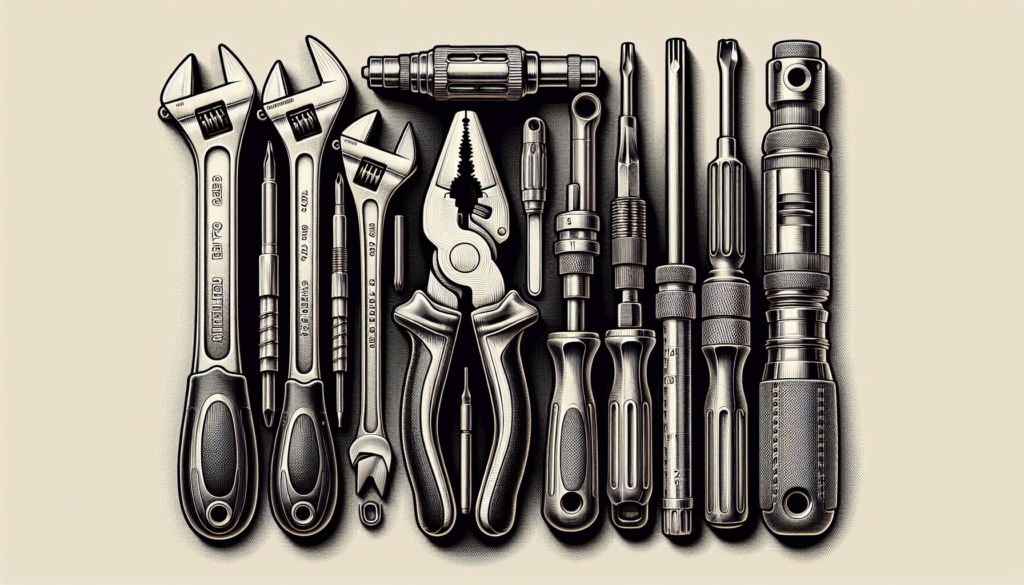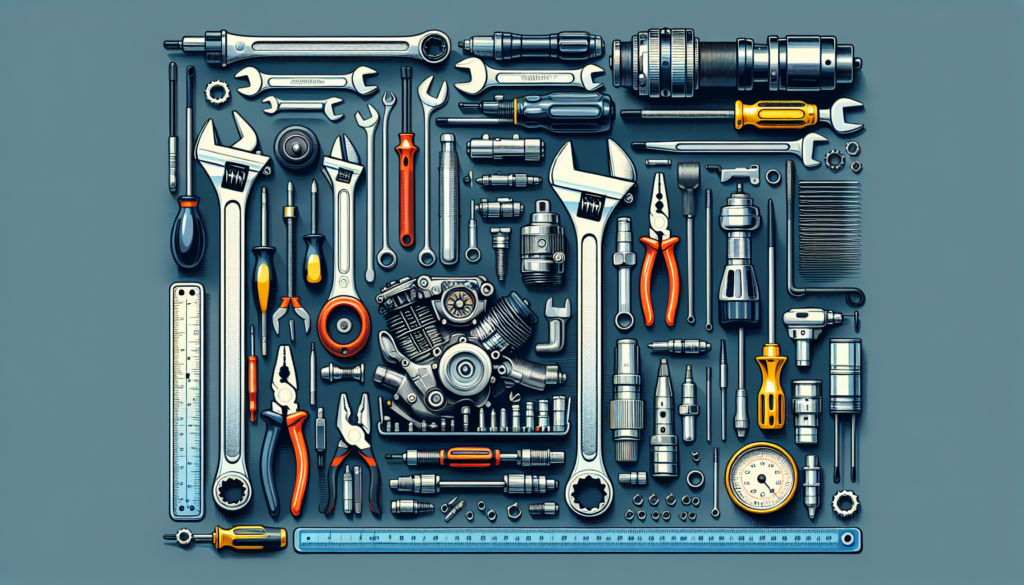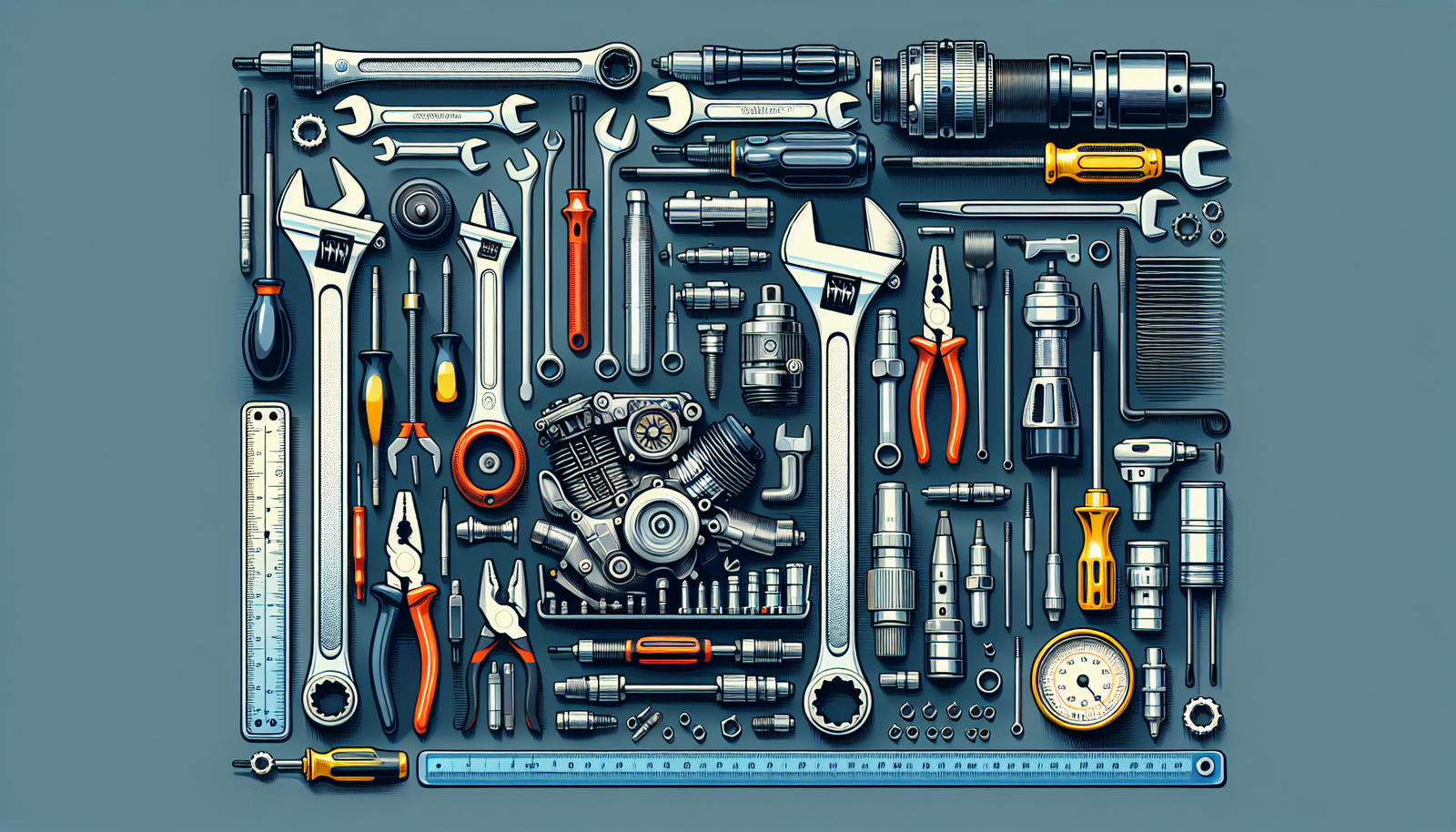Imagine having the wind in your hair, the sun on your face, and the invigorating scent of the sea in your nostrils as you expertly guide your boat across the water. Suddenly, this perfect moment is disrupted by your boat’s engine sputtering and coughing. Neglected engine maintenance is to be blamed. Even though it may seem like a daunting task, it’s not too difficult when you have the right tools. This is what “Essential Tools for Boat Engine Maintenance” details, providing you, the diligent boat owner, with a comprehensive list of tools required to keep your vessel in peak working condition, ensuring smooth sailing on all your future sea ventures.

Understanding Boat Engines
A critical first step in the routine of maintaining boat engines is understanding how they function. Gaining knowledge about different boat engines and how they work can be your best friend during this journey.
Different types of boat engines
Boat engines can come in various types and each type has its unique set of maintenance needs. The most common types include outboard engines (which are portable and can be clamped to the hull), inboard engines (situated within the body of the boat), and stern-drive engines (a combination of inboard and outboard engines). Understand the type of engine your boat has to get to grips with its particular maintenance requirements.
Basic principles of boat engine operation
Regardless of the type, all engines function on similar basic principles. They convert fuel into motion by burning it in a sealed chamber and using the explosion to drive a piston. This mechanical energy is then converted into propulsive power. Knowing these simple concepts is vital to diagnose potential problems and conduct routine maintenance tasks.
Routine Maintenance Tasks
Just like a car, a boat engine requires regular upkeep to keep it running smoothly and to expand its lifespan.
Periodic oil changes
Just like your car, your boat engine needs periodic oil changes. How often you change the oil can depend on the type of engine and how frequently you use your boat. Generally, an oil change is required every 50-100 hours of operation or at least once a year.
Changing fuel and oil filters
Though often overlooked, changing your boat’s fuel and oil filters is equally as important as changing the oil. This should be done at the same time as oil changes to ensure optimum engine performance.
Cleaning and replacing spark plugs
Spark plugs ignite the fuel in your engine’s cylinder. Regular cleaning ensures they function properly, but they also need to be replaced periodically. Usually, a spark plug that’s performing well is grayish-tan in color.
Checking and charging the battery
Keeping continual tabs on your boat’s battery health is essential. They should be cleaned of any corrosion and tested regularly to ensure enough charge is being stored. Recharge or replace the battery as required.
Tool Kit Essentials
Having a comprehensive tool kit on board can make all the difference for routine maintenance and unexpected repairs.
Socket set
A socket set is a must-have in any tool kit. It provides the tools needed to remove and fasten a variety of nuts and bolts in your engine.
Screwdrivers
A good quality set of screwdrivers is indispensable. Ensure you have both flat-head and cross-head screwdrivers of various sizes.
Wrench set
Wrenches are needed for loosening and tightening larger bolts and parts that are difficult to reach.
Pliers
Pliers serve multiple purposes from cutting and bending wires to holding and turning various parts.

Specialized Tools for Engine Work
Alongside your essential tools, there are a few more specialized items you’ll need for boat engine work.
Compression tester
This tool helps in diagnosing engine problems. It measures the cylinder compression and can reveal issues with the valves, bores, or pistons.
Spark plug socket
This is a specialized socket used to install and remove spark plugs from the engine.
Telescopic magnet
This tool is a lifesaver for retrieving dropped screws, bolts, or other small metal items from tight places within the engine
Oil extraction pump
This helps you change the engine oil without making a mess, a useful tool especially when dealing with inboard engines that lack drain plugs.
Diagnostic Equipment
Investing in some diagnostic equipment for your tool kit can save time at identifying problems.
Multimeter
This multi-purpose tool checks voltage, resistance, and current. It’s great for figuring out electrical problems.
Engine hour meter
This handy tool helps track how many hours the engine has been running, which aids in scheduling regular maintenance.
Battery tester
A battery tester is used to check the charge of your boat’s battery, helping you avoid unexpected power issues.
Fuel system pressure gauge
This measures the pressure in the fuel system and can indicate if there are issues with the fuel pump or injectors.
Cleaning and Maintenance Supplies
Keeping your engine clean and well-maintained can prevent a lot of headaches down the line.
Engine degreaser
Grease and oil buildup in your engine can cause issues over time. Regular use of a good engine degreaser will keep these problems at bay.
Corrosion inhibitors
Boat engines are frequently exposed to harsh conditions that can cause corrosion. Regular application of corrosion inhibitors can help protect your engine.
Brushes and cleaning cloths
Having a good assortment of brushes and cloths will make your cleaning tasks much easier.
Drain pan for oil changes
A suitable drain pan will make oil changes much less messy. Make sure it’s large enough to hold the amount of oil in your engine.
Safety Equipment for Engine Maintenance
Besides tools and cleaning supplies, safety must be a major concern during any type of engine work.
Safety glasses
Protect your eyes from splashes of chemicals or small flying debris using safety glasses.
Disposable gloves
These will protect your hands from chemicals and oil, and also keep them clean.
Fire extinguisher
Engines can be flammable, so having a fire extinguisher handy is essential.
First aid kit
Whether it’s a minor cut or a bruise, a first-aid kit is a must to treat any injuries immediately.
Storing and Organizing Maintenance Tools
All these tools and equipment need to be stored properly to ensure they are easily accessible when you need them.
Tool box or bag
A sturdy toolbox or bag provides a secure and organized place to keep all your tools together.
Part storage bins
Perfect for small parts like screws and bolts, these bins will prevent them from getting lost.
Labeling and inventory system
Proper labels and an inventory system can help you quickly identify and locate each tool.
Safe and dry storage location
To prevent corrosion and damage, tools should always be kept in a safe, dry place.
Learning About Boat Engine Maintenance
Learning about your specific engine is key in maintenance tasks.
Owner’s Manual
This is your go-to guide for all things related to your engine. It will provide you with specific instructions for your engine’s make and model.
Maintenance and repair manuals
In addition to the owner’s manual, there are aftermarket repair manuals available for nearly all engine types. These are often more detailed and easier to understand.
Online resources and forums
The internet offers numerous resources and forums where you can learn from other boaters’ experiences and get answers to your questions.
Local workshops and classes
Many community colleges and marine stores offer workshops and classes on boat maintenance. They can provide hands-on training and expert advice.
Regular Inspection Guidelines
Regular inspection is necessary for problem detection and prevention.
Inspection schedule
Create a regular schedule for maintenance and stick to it, adjusting as per the manufacturer’s recommendations.
Checklist for routine inspections
Having a specific checklist during your inspections will make sure nothing gets missed.
Recognizing and diagnosing common problems
knowing the common problems that your engine might have and how to diagnose them can save you a lot of time and trouble.
When to call a professional mechanic
Lastly, while routine maintenance can be done by yourself, you should also know when to call in the professionals. If you come across a problem that seems beyond your level of expertise, don’t hesitate to seek help from knowledgeable mechanics. Your boat’s health relies on it.


[…] you get started tinkering around with your boat engine, immerse yourself in this list of basic tools that are essential for any DIY boat engine maintenance project. As your father probably told you, the right tools can make all the […]